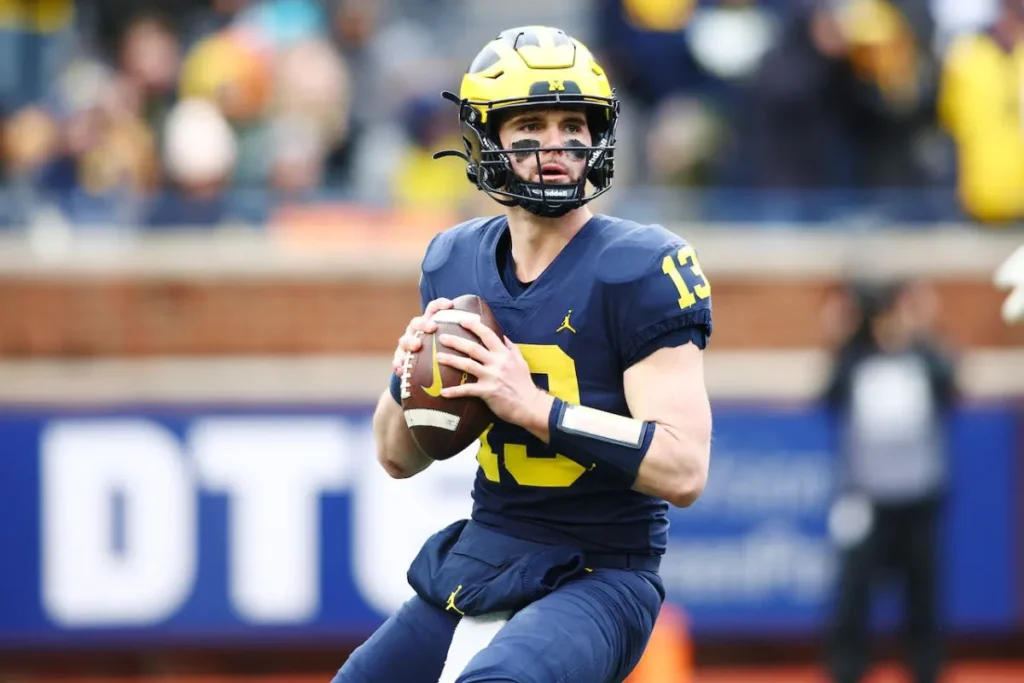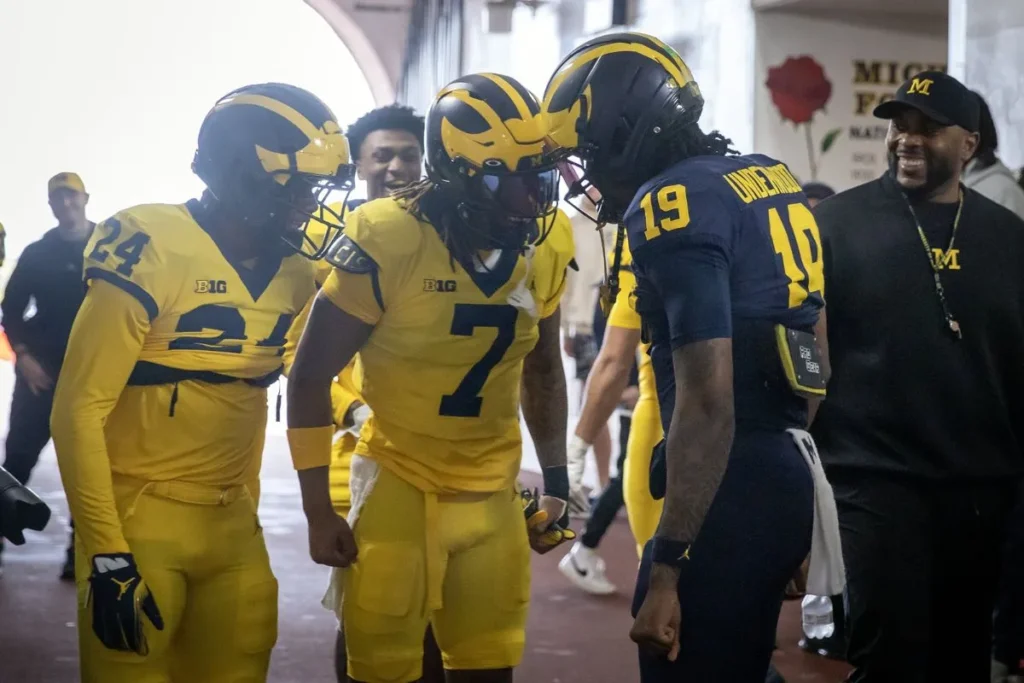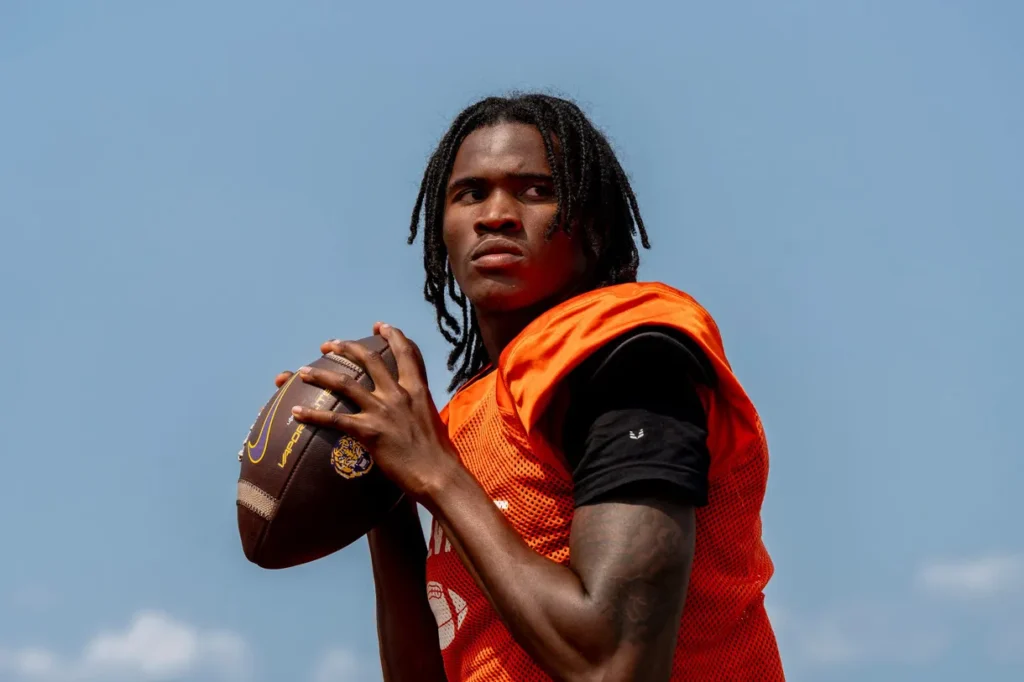
This offseason, Michigan’s coaching staff made a bold decision: to not heavily pursue the transfer portal for a quarterback. In an era where quarterbacks transfer annually and can transform a team instantly, head coach Sherrone Moore and offensive coordinator Kirk Campbell chose to stand by their current roster. The Michigan faithful were assured that athletic quarterback Alex Orji had made significant strides in practice and that his passing ability would surprise everyone. However, the season’s start has shown otherwise, and Michigan is now left searching for answers under center.
To open the season, Michigan turned to quarterback Davis Warren, who flashed promise by connecting with All-American tight end Colston Loveland and showing a willingness to push the ball downfield. Yet, it quickly became evident that Warren struggled with pressure in the pocket, often misreading defenses and throwing costly interceptions. His performance against Texas, where he was unable to keep pace with the Longhorns, further highlighted his shortcomings. Despite being benched after three games, Warren remains Michigan’s leading passer, completing 66.7% of his throws for 444 yards, 2 touchdowns, and 6 interceptions. His inability to avoid sacks and protect the ball proved fatal for his tenure as the starter.
Michigan pivoted to Alex Orji for the team’s first-ever “stripe out” game against USC. Orji’s athleticism was clear, but the offense became one-dimensional, relying heavily on the run. This was effective against a USC squad that is now reeling, but further tests showed that Orji’s struggles with reading coverages and stretching the field were too significant to ignore. His limitations forced Michigan into a predictable run-heavy approach that simply wasn’t sustainable.
Against Washington, Orji was replaced by Jack Tuttle, who appeared to inject some life into the offense. Although Tuttle brought more balance to the team, his accuracy was inconsistent. He flashed moments of pocket presence but struggled to connect with receivers, leading to turnovers and missed opportunities in a deflating loss to Illinois.
Now, after seven games, Michigan sits at 4-3, a far cry from last season’s undefeated national championship run. The offense, particularly the quarterback position, has been one of the most disappointing aspects of the season. Fans are calling for true freshman Jadyn Davis to get his chance, but the coaching staff has hesitated, potentially due to a desire to redshirt him and allow for further development.
Regardless of their reasoning, Michigan must find a solution. A two-quarterback system involving Orji as the runner and Warren or Tuttle as the passer could be on the table, but it doesn’t inspire much confidence. In a year where backup quarterbacks across the country are stepping in and making plays, it’s glaring that Michigan doesn’t have a reliable arm on their roster. Moore’s decision to forgo the transfer portal is now under the microscope, and his legacy may well be defined by his ability to solve the quarterback dilemma.
Michigan has promising talent in the pipeline with Brady Hart and Carter Smith, but the current lack of an elite quarterback is baffling for a program of this stature. Dave Portnoy of Barstool Sports has even offered $3 million to secure a transfer QB, a reflection of the growing frustration. With the toughest remaining schedule in the country, Michigan’s path forward looks uncertain, and their season’s fate could hinge on how they address the quarterback position.
Stay up to date on all Michigan Football and Michigan Basketball content! Follow Wolverine Chronicle on X, Youtube, Tik Tok, Facebook, and Instagram!


